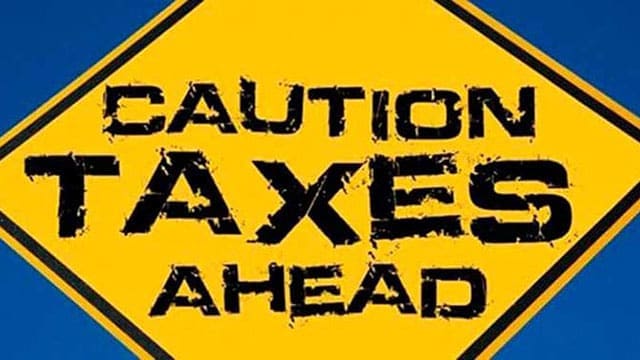The Manitoba government’s decision to permit school divisions to hike school taxes directly contradicts its pledge to reduce taxes
 Across the province, Manitobans are seeing unexpected tax increases from an unlikely source: school divisions.
Across the province, Manitobans are seeing unexpected tax increases from an unlikely source: school divisions.
In February, the Manitoba government announced more spending on education. However, the government also announced that if school divisions deem this increase insufficient, they will be allowed to raise local school property taxes again.
This move will not make life more affordable. A tax hike by any other government sucks just as much.
Manitoba is the only province that still funds education through locally determined school taxes. The previous government froze this practice for the last two years as part of a larger plan to eliminate locally determined school taxes over 10 years and instead fund education provincially by offering property owners rebates on their school taxes.
In 2023, the 50 percent rebate saved a household $774 off a $1,550 school tax bill.
 |
| Related Stories |
| Manitoba is fortunate to not have teacher strikes
|
| School board codes of conduct are silencing trustees and undermining democracy
|
| Kinew government is facing some harsh realities
|
What are the results of the new government’s idea? Higher taxes.
Raising property taxes is one of the worst taxes as it disregards one’s ability to pay. Unlike income taxes, where higher earnings result in higher tax payments, property taxes increase regardless of income changes.
It doesn’t matter if you are a senior citizen living off your fixed pension or a CEO sleeping on a big bed of cash; your property tax bill depends solely on the tax rate and the government’s assessment of your home’s value.
And now taxpayers are feeling the pinch.
The Winnipeg School Division is trying to raise taxes by 3.4 percent this year. Pembina Trails School Division wants a three percent increase. Louis Riel School Division is proposing a 7.5 percent tax increase, and in Morden, the Western School Division is proposing a whopping 17 percent property tax increase.
The floodgates have opened.
The negative effects of rising property taxes are even worse in rural places like Morden. According to the Keystone Agriculture Producers, these hikes disproportionately affect farmers due to the significantly higher property tax burdens they face compared to the owner of a typical house.
But families and farmers aren’t the only ones who will have to fork over more. The provincial government will feel the pinch as well. As the government has committed to keeping the 50 percent rebate introduced by the previous government, it will owe taxpayers higher rebates as local property taxes increase. The government can’t increase costs like this when it’s staring down a $1.6 billion deficit.
The NDP election platform highlighted “lower taxes and bills” as one of its plans to make life easier for families. Allowing school divisions to hike property taxes is the opposite of that plan.
Although the provincial government should shoulder most of the blame for enabling these tax hikes, school divisions should also be looking to cut costs instead of taking more from families already having trouble affording necessities.
Last year, the Chief Superintendent of the Winnipeg School Division was paid about $323,000. A Pembina Trails School Division Superintendent made $276,000 the same year. The average Manitoban makes about $58,000 per year.
These aren’t payments for teachers who educate students but salaries for senior bureaucrats.
For context, Manitoba Premier Wab Kinew earns approximately $200,000 per year. Members of the legislative assembly make about $103,000. Administrators of school divisions shouldn’t be making more than the people tasked with running the province.
The government has said it will keep the 50 percent rebates but will offer a new funding model in the future. That funding model can’t include higher taxes.
This government has loudly committed to lowering costs for Manitobans. The Premier needs to shut the door on local property tax hikes and work to lower costs for Manitobans.
Gage Haubrich is the Prairie Director for the Canadian Taxpayers Federation.
For interview requests, click here.
The opinions expressed by our columnists and contributors are theirs alone and do not inherently or expressly reflect the views of our publication.
© Troy Media
Troy Media is an editorial content provider to media outlets and its own hosted community news outlets across Canada.

